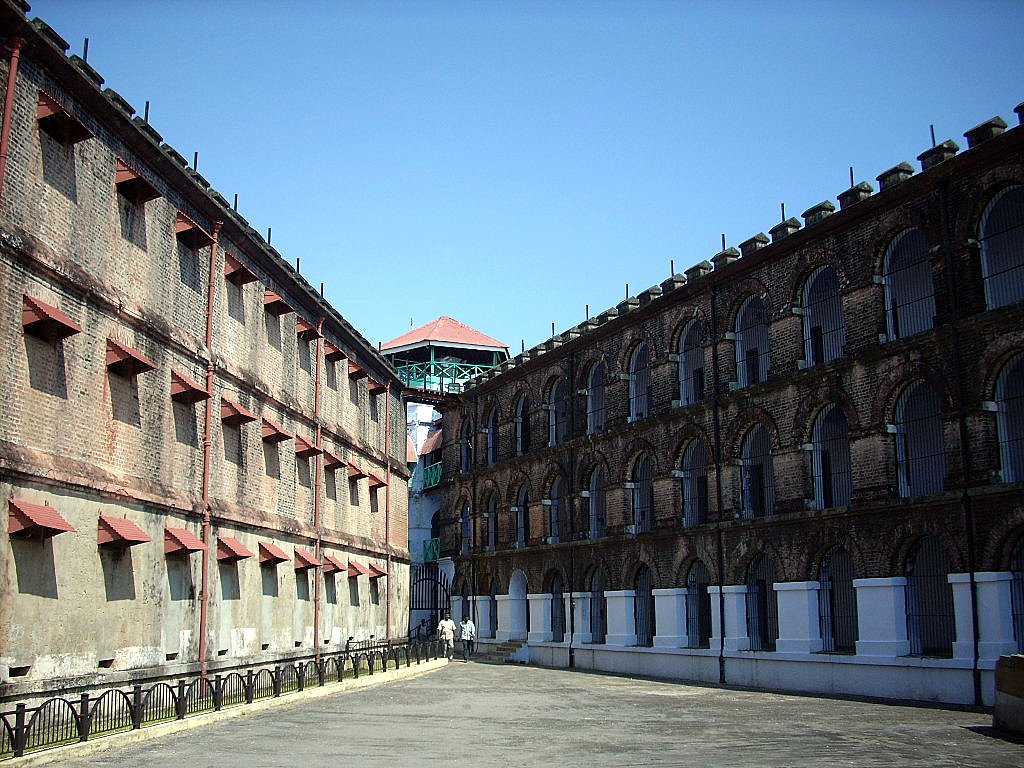On This Day 21 April 2024 Sunday
On This Day 21 April, Sam Vikram: 2081 Purnimanta Mass: Chaitra Paksha: Tithi: Vikram Samvat – 2081, PingalaSukla Paksha Trayodashi , let us have a quick look of the events and anniversaries of India and the world
 Panchang /
Panchang /
Shaka Samvat: 1946
Purnimanta: Chaitra
Tithi: Vikram Samvat – 2081, PingalaSukla Paksha Trayodashi
On This Day
Festivals Today: Pradosh Vrat, Mahaaveer Jayantee
Festials Tomorrow: Prthvee Divas
Day Today: World Creativity and Innovation Day (A/RES/71/284)
Day Tomorrow: International Mother Earth Day (A/RES/63/278)
World Book and Copyright Day [UNESCO] (UNESCO 28 C/Resolution 3.18)
English Language Day
Yoga:
Vyaghata – Apr 21 02:47 AM – Apr 22 03:44 AM
Harshana – Apr 22 03:44 AM – Apr 23 04:28 AM
Karana:
Kaulava – Apr 20 10:42 PM – Apr 21 11:58 AM
Taitila – Apr 21 11:58 AM – Apr 22 01:11 AM
Garija – Apr 22 01:11 AM – Apr 22 02:21 PM”
Sunrise: 5:53
Sunset: 18:46
Moonrise: 16:38
Moonset: 4:48
 Auspicious Time
Auspicious Time
Abhijit Muhurat – 11:53 AM – 12:45 PM
Amrit Kaal – 09:19 AM – 11:07 AM
Brahma Muhurat – 04:16 AM – 05:04 AM
![]() Inauspicious Time
Inauspicious Time
Rahu – 5:09 PM – 6:46 PM
Yamaganda – 12:19 PM – 1:56 PM
Gulika – 3:32 PM – 5:09 PM
Dur Muhurat – 05:03 PM – 05:54 PM
Varjyam – 02:32 AM – 04:19 AM
Information Source: https://www.prokerala.com/
Today / आज
Freedom Fighters sacrificed- At Least: 8
Major Historical Events
First Battle of Panipat – Historical Event
- Date: April 21, 1526
- Event: The First Battle of Panipat marked a decisive conflict that reshaped the Indian subcontinent’s political landscape. This battle was fought between Babur, a Central Asian conqueror and the founder of what would become the Mughal Empire, and Sultan Ibrahim Lodi of the Delhi Sultanate.
- Outcome: Babur’s victory over Ibrahim Lodi at Panipat was significant due to several tactical innovations, most notably the use of field artillery and mobile cavalry, which were relatively new to Indian warfare at that time.
- Significance: The victory not only established Mughal rule in India, led by Babur, but also introduced new warfare techniques to the region, setting the stage for the next several centuries of Mughal dominance in the Indian subcontinent.
I. K. Gujral – Political Leadership
- Date of Swearing-In: April 21, 1997
- Political Career: Inder Kumar Gujral, commonly known as I.K. Gujral, served as the 12th Prime Minister of India. His tenure was marked by a relatively short period in office but was notable for significant diplomatic efforts.
- Gujral Doctrine: One of the key contributions of I.K. Gujral to Indian foreign policy was the formulation of the ‘Gujral Doctrine’, which emphasized the importance of India maintaining cordial relations with its neighboring countries based on mutual respect and non-reciprocal accommodation of each other’s concerns.
- Impact: Although his time in office was brief, Gujral’s approach to foreign policy, especially concerning India’s immediate neighbors, left a lasting impact on the conduct of India’s diplomatic engagements and is often cited as a proactive step towards improving regional stability.
History in Brief On This Day
Manfred von Richthofen, The Red Baron – Military History: On April 21, 1918, during World War I, the legendary fighter pilot known as the Red Baron (Manfred von Richthofen) was shot down and killed during the Battle of the Somme. He was credited with 80 aerial victories and was buried with full military honors by British pilots.
Greek Military Coup – Historical Event: On April 21, 1967, a military coup in Greece led by Georgios Papadopoulos established a military dictatorship that lasted until 1974.
Second Liberian Civil War – Historical Event: The Second Liberian Civil War began on April 21, 1999, marking another turbulent period in the nation’s history.
Muhammad Iqbal – Commemoration: Muhammad Iqbal, a prominent freedom activist, passed away on April 21, 1938, in Sialkot, Pakistan.
Anniversaries On This Day
Karni Singh – Birthday Recognition: Karni Singh, a politician from Bikaner, Rajasthan, was born on April 21, 1924.
Srinivasaraghavan Venkataraghavan – Birthday Recognition: Born on April 21, 1945, in Chennai, Srinivasaraghavan Venkataraghavan is celebrated both as a cricketer and a cricket umpire.
Shivaji Satham – Entertainment Luminary: Celebrating his birthday on April 21, 1950, Shivaji Satham has made notable contributions to the entertainment industry.
Tahir Raj Bhasin – Entertainment Luminary: Tahir Raj Bhasin, an influential figure in the entertainment industry, was born on April 21, 1987.
Tony Romo – Sports Figure: Tony Romo, an American football player, was born in San Diego, California, USA, on April 21, 1980.
Marshawn Lynch – Sports Figure: Celebrating his birthday on April 21, 1986, Marshawn Lynch is recognized as a distinguished American football player from Oakland, California, USA.
Nikki Cross – Sports Figure: Nikki Cross, born in Glasgow, Scotland on April 21, 1989, is known for her achievements in wrestling.
Isco – Sports Figure: Born on April 21, 1992, in Benalmádena, Spain, Isco is celebrated as a professional football player.
Freedom Fighters’ sacrifice
On This Day: The Freedom Struggle Events of April 21
The historical events that unfolded on April 21st across different years and locations have been pivotal in shaping the resistance against colonial rule in India. This essay explores notable instances of bravery and sacrifice that occurred on this date, highlighting the resolve of individuals and groups who stood against oppression.
The 1857 Uprising: Sacrifices of April 21, 1858
On April 21, 1858, the struggle for freedom saw the execution of several key figures who participated in the 1857 Uprising. This day marked the tragic end for individuals such as Chandi Singh and Faiz Khan, both of whom served in the British Indian Army before deserting to take up arms against the British. Their actions, driven by a strong desire for independence, led them to the gallows as they were charged with mutiny and sedition. Similarly, Ghulam Nabi and Ram Lal, also former soldiers, faced execution on the same grounds. Their collective actions and subsequent punishments underscore the harsh realities of colonial reprisals against dissent.
The Martyrs of Sind and Keonjhar
Further highlighting the events of this date, Doolah Khan and Golab Khan from Sind (now in Pakistan) were significant figures who fought against British dominion during the 1857 Uprising. Their involvement in various military actions against the British marked them as rebels, leading to their life sentences and eventual deaths in captivity in the Andaman Islands. Additionally, in the Keonjhar Princely State of Orissa, leaders like Bairagi Kol, Baikuntha Kol, and Pandu Naik were hanged following their participation in an armed revolt against local rulers and the British authority on April 21, 1868. Their uprising was a notable example of local resistance influenced by broader anti-colonial sentiments.
Revolutionary Actions in the Early 20th Century
Moving into the 20th century, April 21 continued to be a significant date in the history of India’s freedom struggle. In 1930, Himanshu Bimal Sen, a participant in the Chittagong Armoury Raid, succumbed to injuries from his revolutionary activities, highlighting the ongoing resistance against British rule. His death underscored the sacrifices made by the younger generation of revolutionaries who were inspired by the earlier uprisings.
The Babbar Akalis and the Fight for Independence
The Babbar Akali movement, representing a radical wing of the Akali movement in Punjab, also saw significant events unfold on this day. Chinta Singh Kang, a former soldier turned revolutionary, was executed on June 5, 1941, but his capture on April 21, 1940, marked a critical moment in the resistance against colonial authorities.
Conclusion: Reflections on April 21st
The events of April 21 across various years and regions represent a microcosm of the broader struggle for Indian independence. From the gallant sacrifices in the mutinies of 1857 to the strategic insurrections of the early 20th century, this date serves as a poignant reminder of the enduring spirit and the ultimate sacrifices made by countless individuals in the pursuit of freedom. Each story from this day contributes to our understanding of the complex tapestry of India’s fight against colonial rule, offering lessons on resilience and the quest for justice.
Feature Image: This image shows the Andaman Cellular Jail, historically known as Kālā Pānī. It is a daytime view of the jail’s architecture, characterized by its colonial-era construction with long rows of barred windows and thick brick walls. The picture captures two of the jail’s wings meeting at a right angle, with a central tower visible in the background. The tower has a pointed roof with open sides, which might have served as a watchtower. The open area in front is paved, and a few people can be seen walking, giving a sense of scale to the imposing structures. The jail’s design, with its radial layout, was meant to keep prisoners isolated. This site is a poignant reminder of India’s colonial past and the freedom struggle, as many freedom fighters were incarcerated here. (Click here to see image) [Credit https://flickr.com]

Great line up. We will be linking to this great article on our site. Keep up the good writing.
Hello.This article was really interesting, especially since I was searching for thoughts on this issue last Thursday.